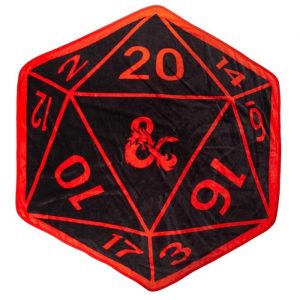 During my upbringing in India, Dungeons & Dragons (D&D) or role-playing games were unfamiliar to me. However, over the past five years, I have had the pleasure of immersing myself in this captivating game. In this blog, I am sharing some valuable leadership insights gleaned from my experiences with D&D.
During my upbringing in India, Dungeons & Dragons (D&D) or role-playing games were unfamiliar to me. However, over the past five years, I have had the pleasure of immersing myself in this captivating game. In this blog, I am sharing some valuable leadership insights gleaned from my experiences with D&D.
Dungeons & Dragons (D&D) is a fantasy tabletop role-playing game that has captivated the hearts and minds of players for decades. While it’s known for its storytelling and epic battles, D&D also offers valuable insights into leadership. Surprisingly, the lessons learned in the imaginary realms of dungeons and dragons can be applied to real-world leadership situations. Let’s explore some of these leadership lessons from the world of D&D.
- Collaboration and Teamwork:
D&D is a team-based game where players form parties to achieve common goals. Leadership in D&D often means bringing together a diverse group of characters with unique abilities and personalities. Similarly, in the real world, effective leaders know how to foster collaboration and teamwork among their team members, recognizing that diverse strengths and perspectives can lead to success. - Adaptability:
In D&D, dungeon masters create dynamic and ever-changing scenarios, forcing players to adapt and make quick decisions. Leaders must also be adaptable, especially in today’s fast-paced world, where unexpected challenges are common. Being able to pivot, adjust strategies, and make informed decisions on the fly is a valuable trait. - Decision-Making:
D&D players face numerous decisions throughout their quests, some of which can have far-reaching consequences. Leaders are often tasked with making critical decisions that impact their teams and organizations. D&D teaches the importance of considering various options, gathering information, and making well-informed choices. - Communication:
Effective communication is vital in D&D. Players need to convey their intentions, share information, and work together seamlessly. Leaders must also be skilled communicators, conveying their vision, goals, and expectations clearly to their teams. Moreover, active listening and fostering an open dialogue are essential leadership traits. - Problem Solving:
D&D adventures are rife with puzzles, challenges, and obstacles. Players must think creatively and use their resources to overcome these hurdles. Leaders often encounter complex problems in the workplace. Learning from D&D, they can encourage innovative thinking, resourcefulness, and a willingness to tackle challenges head-on. - Empowerment:
D&D empowers players to take ownership of their characters and decisions. Likewise, successful leaders empower their teams, granting them autonomy and trust to make decisions within their areas of responsibility. Empowered team members tend to be more motivated and engaged. - Resilience:
In D&D, characters face setbacks, injuries, and defeats, yet they press on. Leaders, too, must display resilience in the face of adversity. It’s essential to bounce back from setbacks, learn from failures, and maintain a positive outlook. - Vision and Strategy:
Dungeon masters in D&D create grand narratives and worlds for players to explore. Leaders also need a clear vision and strategy to guide their teams and organizations. A compelling vision can inspire and align team members toward a common purpose.
Dungeons & Dragons is not just a game; it’s a source of valuable leadership lessons. From teamwork and adaptability to decision-making and resilience, the principles learned in the world of D&D can be applied to leadership in any setting. Aspiring leaders and seasoned professionals alike can draw inspiration from the adventures of their favorite characters, both in fantasy realms and the real world. So, roll the dice and embark on your own leadership quest!
JPS Nagi
November 30, 2023